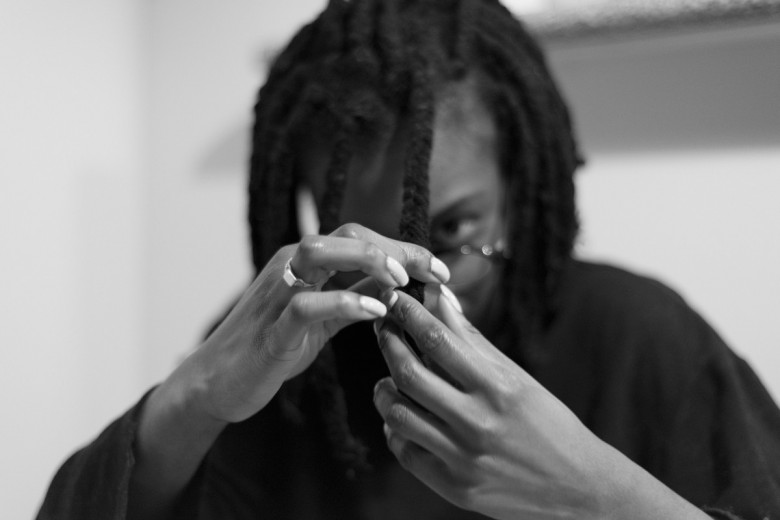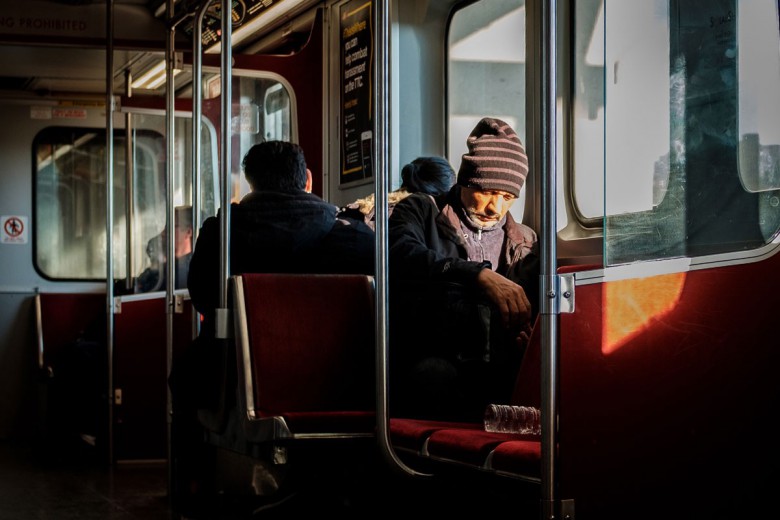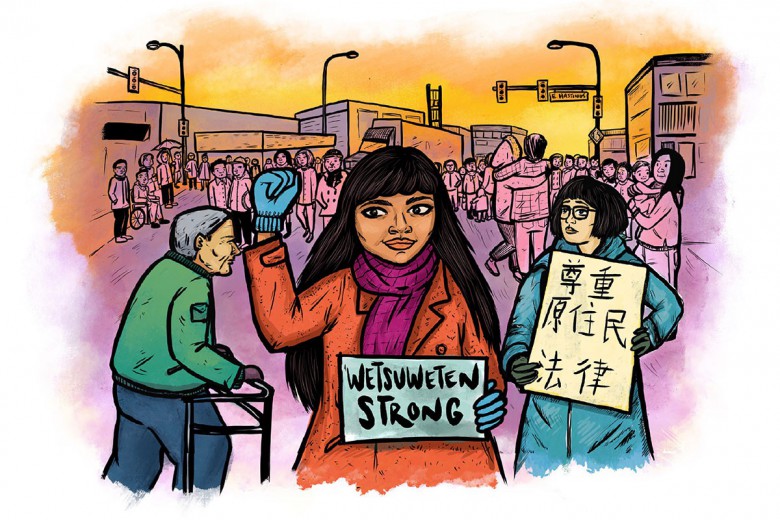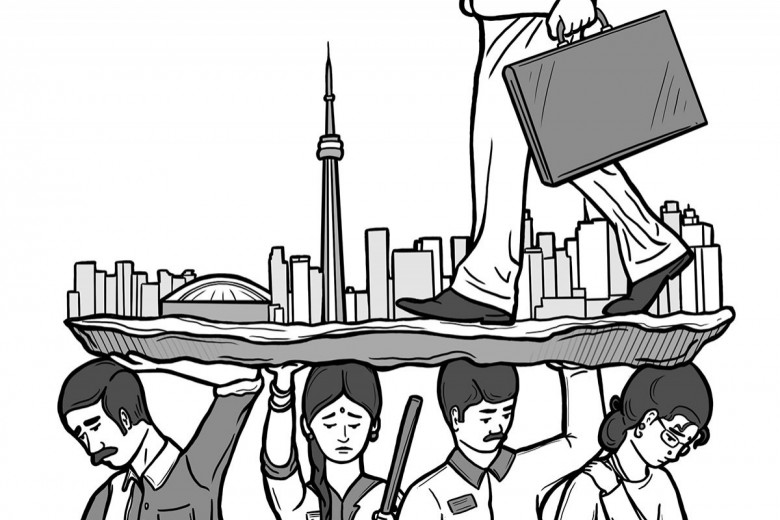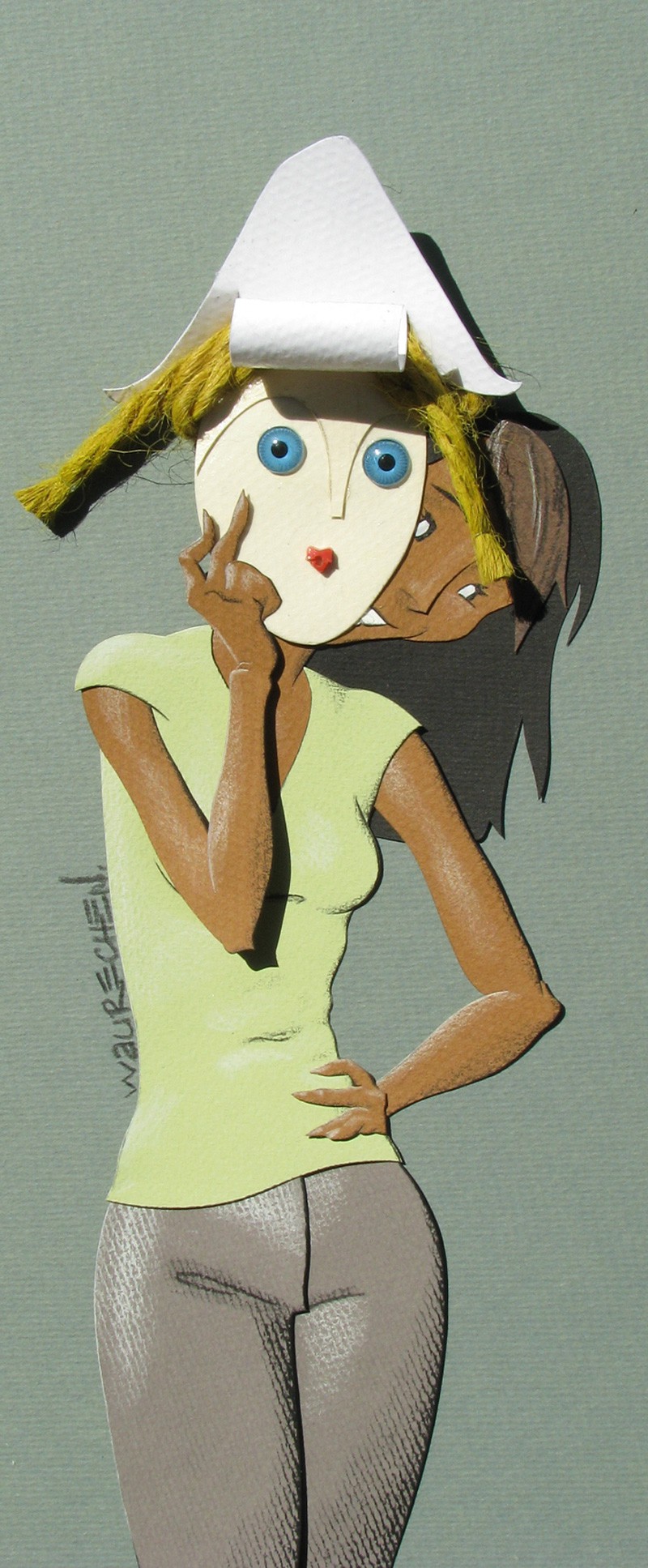
i. I stop at a roadside chip truck on a bright November afternoon. The chip truck worker is an older man leaning from an elevated window over a handful of customers.
-A medium fries with mayo, please.
-You must be Dutch! Only the Dutch eat ‘em that way.
-Yeah, I am Dutch.
-You know what else they like on their fries?
-Peanut sauce.
-What? No, mustard! Only the Dutch will ask for mustard.
-Oh, really?
-But you’re not actually Dutch.
-Yes, I am.
-No, no. Come on, now.
ii. I am volunteering at a festival, working the doors of an event with a fellow volunteer, a tall, friendly man. We are seated at a desk together, searching through a box of name tags for our own names.
-Your name sounds Dutch, I say.
-Yes, my parents are Dutch.
-I’m from there, too. Do you speak Dutch at all?
-No, not really. A bit of German. But I’ve been to Holland. To a little town in the north called Stadskanaal.
-Oh, really. My aunt lives there. I’ve been to Stadskanaal lots of times. My mom’s family is from the north.
-Hey, small world!
-Yeah.
-But you’re not Dutch, are you?
iii. I walk into a Dutch vice-consulate office to renew my passport. There are photographs on the wall: Amsterdam’s narrow row houses and boats with curved, dark sails. I speak to the secretary, a woman with square-framed glasses on a gold chain.
-Hi, I’m here to renew my passport.
-This is the Dutch vice-consulate.
-I know.
-You need to have a Dutch passport.
iv. At a crowded reception following a graduation ceremony, an acquaintance introduces me to a stylish, white-haired woman.
-This is Sadiqa. She’s Dutch, too.
-You mean Indonesian!
-No, Dutch.
The woman turns to my acquaintance. -How can she be Dutch?
I do not know how to divide myself into fractions when it comes to my ethnicity; I cannot say how much of me is my first language, or the food that was common on our family table, or where that food was grown. A genealogist might classify me as half Dutch and half Kenyan, and within the Kenyan half, several eighths and sixteenths Pakistani and Afghani.
As is evident in the conversations transcribed above — a small selection from a growing compilation — that Dutch half sometimes turns into the whole story. It’s not because I want to obscure any other parts of my background; my answer to where I am from differs with the context of who is asking, and why. But claiming to be Dutch, I have found, can draw out something ugly lurking below the surface of an interaction. When I suspect its presence, I say Dutch, and then it emerges: a monstrous little creature on a hook, writhing in the sudden light. How can you be Dutch?
The remarkable thing, to me, is not that the creature is there. It is undoubtedly a product of racist assumptions: I am Dutch under the standard definitions of birth and citizenship, and I spent my childhood in the Netherlands. To question my claim is to imply that my appearance betrays my words (my hair, eyes and skin are all shades of brown). The image people hold of lightly pigmented homogeneity may be outdated, but it is not surprising. And it is easy to imagine how that assumption undermines the lives of residents of the Netherlands who are not white, even as the current Dutch government lays the blame with them, adopting increasingly hidebound integration laws. The difficulty, for me, is in understanding why people will persist in stating that I cannot be Dutch. It is as if we are watching that monstrous little creature approach suffocation, and they shout, Wait, I need that thing!
What for?
There is no single, uncomplicated answer. But one motive could be our demand for material comfort. We, the wealthy minority in the global north, live in states of luxury that require many people to be subjugated, and race is one convenient way to invent divisions. Society’s devalued peoples can then be forced from their own land so that we may inhabit or use it. They can assemble our jeans under abusive conditions or suffer pesticide poisoning to provide us with unblemished grapes. They can die from lack of money for medicines while we vacation in proximity. As one of the we, I inhabit a strange space; I am not white, but I have benefited from many of these warped relations, inheriting the profits of imaginary difference. Without that difference, how would we sleep at night?
I do not mean to draw too direct a line between these conversations and the bigger picture; our exchanges are twigs on a branch that grew from another branch, and that one from another, right down to the wide trunk that secures their privilege, old as the masts of the first colonizing ships. I doubt that they defended their assumption with the conscious intent of safeguarding their standard of living. But as an unwitting tradition, the practice makes sense historically. Not only did it bring Sri Lankan cinnamon to Dutch apples without the inconvenience of fair trade practices, but it continues to protect the comfortable Dutch from the very people who make their comfort possible.
For example, during the late 1950s and 1960s, there was a demand in the Netherlands for cheap, unregulated labour. Workers were actively recruited from Mediterranean countries, especially Turkey and Morocco. In the mid-‘70s, when the Dutch economy slowed, and particularly when the gastarbeiders (guest workers) began to bring their families to the Netherlands, that recruitment was stopped. The Turkish and Moroccan families who stayed in the Netherlands continue to be treated as a threat by many white Dutch residents. The Dutch Party for Freedom, which advocates an immediate end to all non-Western immigration and the repatriation of non-Western residents to their countries of origin, currently holds nine parliamentary seats.
Of course, racist practices are common in Canada too, and are imposed most brutally on indigenous people. But this country is relatively welcoming to immigrants who are not white. Here, when I call myself Canadian, skepticism is the exception rather than the rule. Also, the question of confronting and reducing racism is at least part of the public discourse in this country. I would like to see added to that discourse the acknowledgment that working against racism is not just a matter of respect, acceptance or getting along. It involves being willing to fundamentally change our relation to material resources as well as to each other, refusing a lifestyle that sustains itself through the exploitation, displacement or dispossession of people imagined as different.
In my own small sphere, I think saying Dutch can matter; because in a context where Dutch means white and white means human, subtly disrupting racist categories is a start.
Sadiqa Khan is a writer and artist. She is currently working on a collection of poems.


